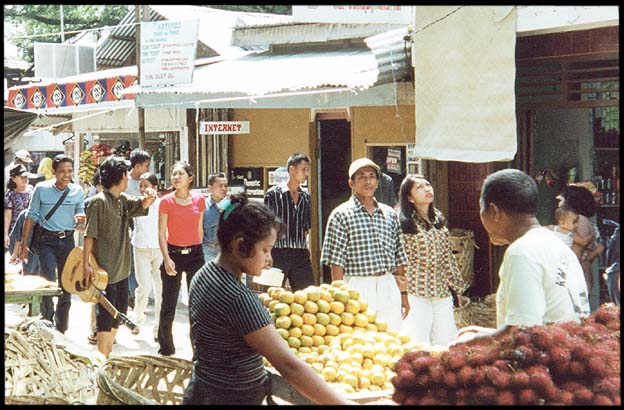 Update:
(November 4, 2003) The town of Bukit Lawang has been completely destroyed. Hundreds were killed as an onslaught of massive logs was swept through town by flash floods. The result of illegal logging operations in the national forest, the river-borne wave of logs tore buildings out by the foundations and smashed them into the ground. It's incredibly sad, and I am starting to wonder why such awful things keep happening to special places in Indonesia (first Bali, now this).
Original description:
Bukit Lawang is a beautiful little town within reasonable day-trip range of Medan (the largest city on Sumatra).
As a consequence, it draws a huge number of middle- and upper-class visitors from Medan every weekend. Most stay overnight on Friday and/or Saturday, some in hotels and others in a large campground along the river.
Monday through Thursday it's a sleepy place. The biggest excitement comes as a result of being across the river from one of only two forests in the world where a dwindling number of orangutans still live in the wild. Everyone has time to talk to everyone, and in the evening locals mix with foreigners at little open-air restaurants along the one footpath through town.
Come Friday afternoon, however, the mobs arrive, mainly groups of young couples but some larger families as well. Suddenly all the hotels and restaurants are full. You have to climb over people to reach the river. Home-grown rock bands blare out from makeshift bandshells, usually in-progress construction sites that are idle for the weekend.
An interesting consequence of all this is that Bukit Lawang is one of the few places I've ever been where foreigners actually pay less for hotel rooms than nationals. We paid under US$2/night for our room; they were charging Indonesians almost $5. The hotel staff explained to me that because foreigners usually stay for a week or two, they still end up spending more money at the hotel. Also the foreigners are better-behaved, don't make noise all night or tear up the rooms, and help keep the neighbors in business by patronizing nearby shops and restaurants. | 





